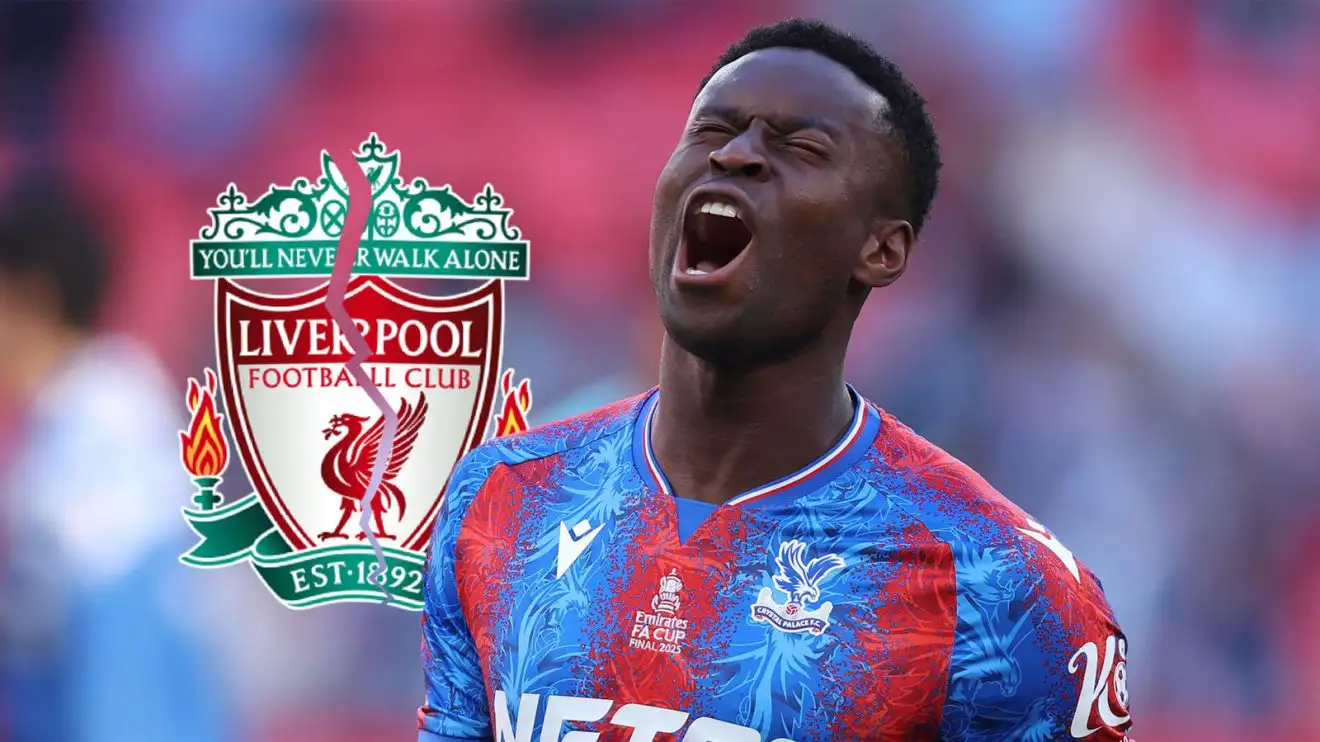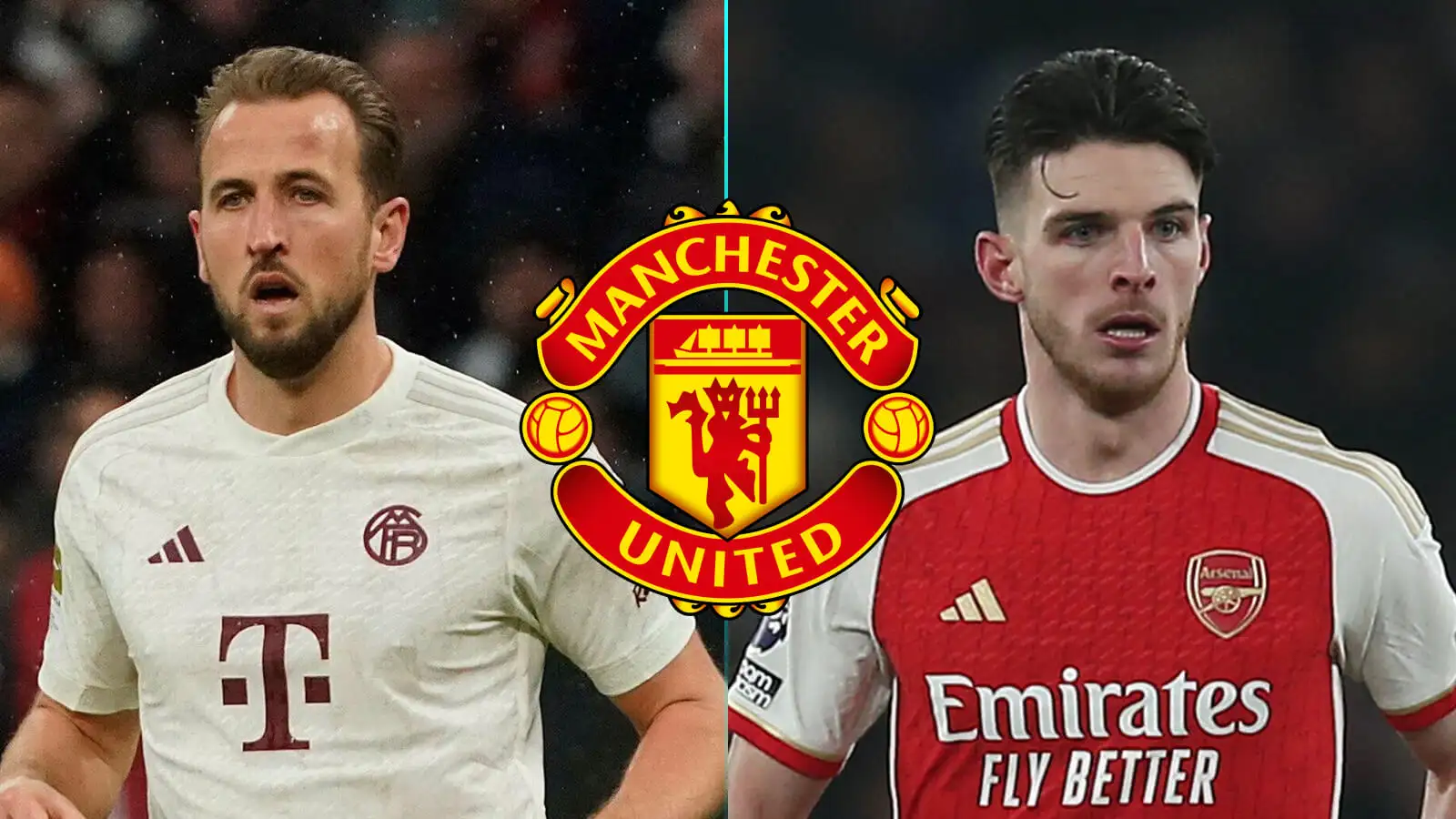Man Utd’s second-choice keepers, Liverpool’s Guehi-shaped hole and other post-window squad gaps

The transfer window is closed, but we’re not quite ready to give up on transfer features just yet. Not when the alternative is international break fixtures and having to think about how on earth we go about doing an England Ladder in a world where Ruben Loftus-Cheek is back in the mix.
So we will continue milking the window for all its worth until the very last drop.
Here we take a look at a few of the more obvious holes and gaps and in some cases meteorite-contact craters that were left unfilled in Premier League squads when the window slammed so dramatically shut and once again, despite it having been around for so very long, caught a lot of teams apparently by surprise.
Manchester United – first-choice goalkeeper
It’s a tricky balancing act, when you think about it, getting the right mix of goalkeepers in your squad.
You obviously want good goalkeepers and one excellent one, ideally. Your second-choice needs to be someone who can come into the team without prompting mass panic. And then there’s the third-choice, who should in a perfect world be a cheerful veteran playing out his final days in the professional game and living his very best life.
The key, really, lies in getting the right gap between your first and second-choice keepers. The second-choice keeper needs to be good enough to keep the first-choice honest, but without creating unnecessary confusion. Proper competition for places is good, generally, but keeper is a position where you really want a bit of reliability and certainty.
Liverpool, of course, had got it perfect in recent years with the elite world-class number one in Alisson, and then a very good but clearly not quite as good back-up in Caoimhin Kelleher. And even Liverpool couldn’t sustain it forever as Kelleher’s understandable desire to be first-choice somewhere grew undeniable.
Manchester United do not have it, and on deadline day they made it even more confusing. In Andre Onana, Altay Bayindir and now Senne Lammens, United have three goalkeepers who will all believe they could or should be first choice. Even the bit they had right – cheerful veteran third-choice keeper – is blown apart because Tom Heaton is now fourth-choice. What a mess.
United did not need to create further confusion in a vital position that has already cost them this season and did so frequently last season.
Had they bought a Donnarumma or a Martinez, it could still have all gone wrong but there would at least have been clarity about who the first-choice keeper was.
Lammens is highly-rated and may in time be the long-term solution. But expecting that to happen quickly is wing-and-a-prayer stuff. Not for the first time in recent years, the United brains trust has afforded itself the luxury of a transfer with an eye on the future when this is a club and team that needs real-time solutions right now.
It’s nice to set yourself up to be judged on the future rather than the present, because the future never comes. But United are drowning in waters they’ve just needlessly muddied.
We really do think that United and City would both benefit from a swap deal.
Liverpool – centre-back
Liverpool enjoyed one of the most outrageous transfer windows ever and it really does seem churlish to nitpick. But there remains a non-zero chance that devoting so much energy to the cherry-on-top signing of Alexander Isak to bolster an already absurdly overpowered Premier League champion attack while leaving a deal for Marc Guehi until the very last minute might appear an error in priorities.
Liverpool have left themselves riskily short at the back, even if Ibrahima Konate was currently operating at the top of his game. Which he is not. Guehi was not just a squad option; he would have instantly improved Liverpool’s first XI.
Joe Gomez is still there as a versatile utility option to fill in gaps where they may appear in the back four, but for all their dizzying quality across the pitch, now Liverpool do appear alarmingly reliant on a 34-year-old Virgil van Dijk being able to play pretty much all of the football – and there is so very much of that football – for at least the next four months.
Given the outlay Liverpool have made elsewhere – and we’re not knocking any of that because we are giddily excited about watching what this team produces – that just seems a daftly unnecessary position to have put themselves in.
And the argument that Liverpool had done what they needed to do to remedy it with Guehi just doesn’t really wash; if you leave such a vital deal until the very last minute you always leave yourself at the mercy of a transfer chain breaking down with a potentially devastating domino effect.
Tottenham – centre-back
Spurs’ centre-back hole is perhaps less immediately conspicuous than Liverpool’s because they have two unquestioned top-tier starters in Cristian Romero and Micky van de Ven, as well as slightly less lofty ambitions for the season as a whole.
What they don’t really have is anything much else if or far more realistically when either/both of those two is unavailable. And while both that pair are top-class performers on the pitch, neither has really proved themselves too reliable at getting on that pitch 50+ times a season.
Romero is in his fifth season at Spurs and has only once managed more than 27 Premier League games. Last season he featured in less than half Spurs’ 38 games.
Van de Ven and his rubber-band hamstrings have played in 43 of Spurs’ 79 Premier League games since joining in the summer of 2023.
Kevin Danso is a perfectly capable third-choice centre-back, and when everybody’s fit also provides Thomas Frank with the back-three option he deployed against PSG.
Beyond that, though, Spurs find themselves relying on Ben Davies. We love Ben Davies, but a Champions League club should not be relying on Ben Davies in big 2025. After that, it looks like poor Archie Gray getting thrown in at the deep end again.
Easy to see why Spurs enquired about Manuel Akanji and Nathan Ake at City; harder to see why they didn’t really seem to try much else when neither of those avenues proved productive.
Leeds – attackers in general
Hard to escape the notion that 49ers Enterprises have let Leeds and Daniel Farke down in the closing days of the window.
There was a lot of promising early work after promotion, with a clear priority for signing some really big lads. A policy we can all get behind for any promoted team embarking on a survival mission.
But even as that process was taking place there was a curious lack of attackers among that collection.
Goalkeeper, defence and midfield were all strengthened really quite impressively, but it’s going to mean nothing if Leeds can’t put the ball in the net.
Sure, having concerns about Patrick Bamford’s injury record and deciding to replace him with Dominic Calvert-Lewin is very funny and everyone likes funny, but this is serious business, lads. It’s no time for banter and whimsy.
Leeds have left themselves dangerously short of creativity and attacking quality in a league where staying in games and frustrating opponents really can only take you so far.
Farke and his team have shown across a challenging first three games that they can certainly compete – even against Arsenal they kept them at arm’s length pretty easily for over half-an-hour before a Classic Set-Piece Goal – but one goal from a contentious penalty in 270 minutes tells a story.
One point against Newcastle was perfectly good, but it could so clearly have been three with just a bit more attacking oomph.
And while Arsenal away is not a fixture upon which Leeds’ season stands or falls, what was alarming there was not really the unflattering final scoreline but the complete and total inability to get out and try to land any kind of punch of their own. The sight of a team with giants in defence and midfield launching the ball to Dan James, Willy Gnonto and Joel Piroe and watching it come straight back every time was borderline comical.
Farke said he needed two attacking players in the closing days of the window and he was right. He got none. It might cost him and Leeds everything.
Brentford – centre-forward
Never ask a woman her age, a man his salary, or a Newcastle fan how Yoane Wissa engineered his deadline-day move to Tyneside.
There’s a very decent case that Brentford’s most conspicuous and damaging black hole is to be found in the dugout where Keith Andrews (for now) occupies Thomas Frank’s big chair. But on the field they’ve been decimated with the two leaders of last year’s attack in Bryan Mbeumo and Wissa off to pastures new.
The wide-forward positions have been addressed in numbers at least – although Brentford do seem to have ended up with a large collection of players who would by choice operate from the left.
Igor Thiago has thus far stepped up gamely to his new first-choice role through the middle with two Premier League goals and another in the Carabao, but he is literally the only centre-forward left in Brentford’s squad, with none of their ragbag collection of wingers and wide forwards particularly compelling ‘Could do a job through the middle, at a push’ candidates.
There could be worrying amounts of unconvincing Kevin Schade false-ninery ahead for the Bees.





